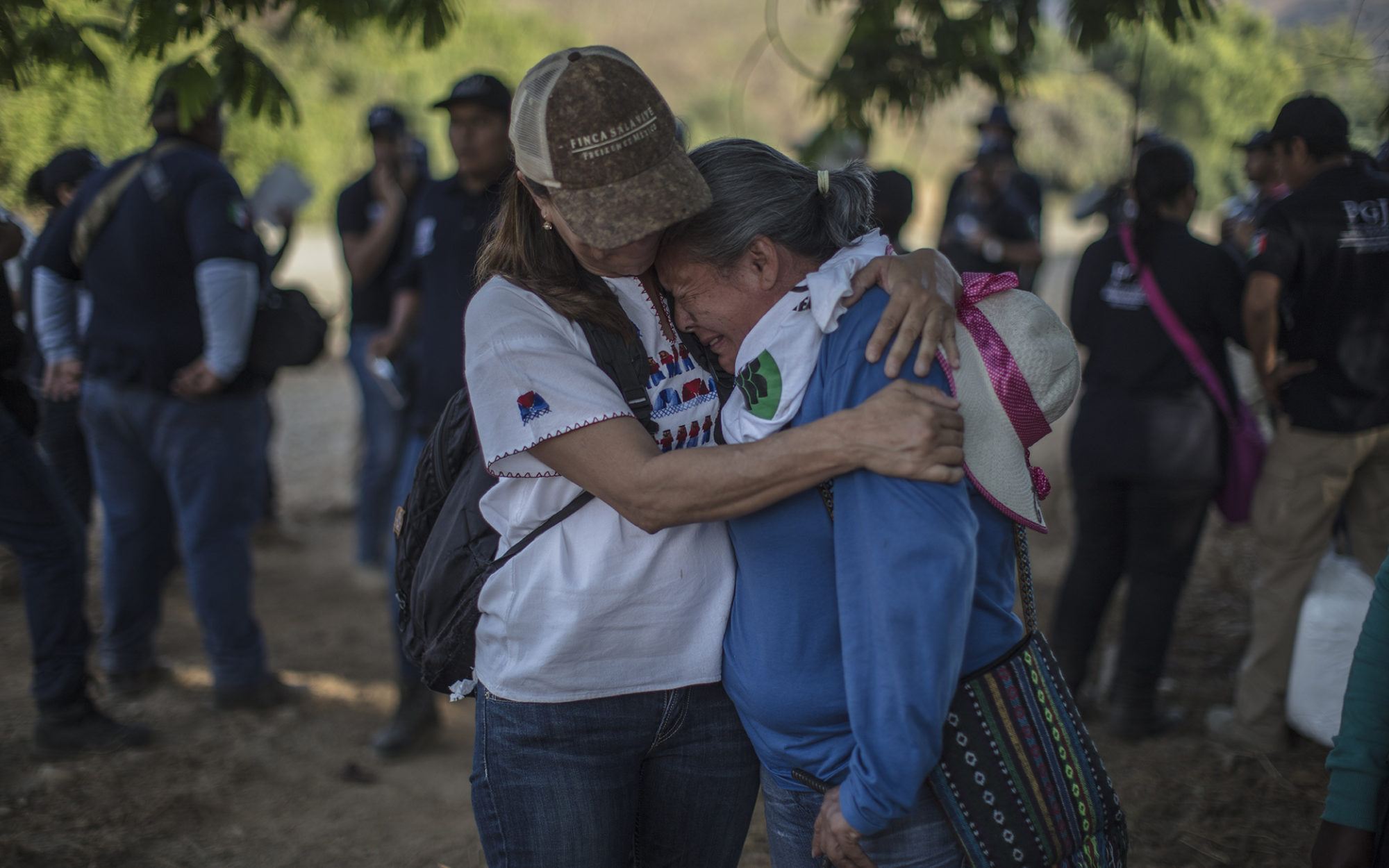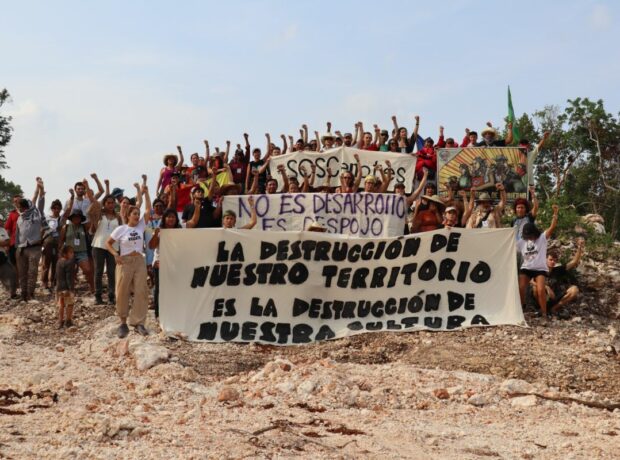In Michoacán, Mexico, a woman whose father and two brothers were disappeared in separate incidents speaks out about the country’s missing and murdered, criticising the government and its smokescreen “War on drugs”.
A group of women embroider the faces of missing loved ones on pieces of white fabric, exhibiting them in the Plaza de Armas – a busy, leafy square in the historic centre of Morelia, the prosperous capital of Mexico’s mountainous south-western state of Michoacán.
The women are part of Familiares Caminando por Justicia (Families Walking for Justice), a group seeking justice for family and friends forcibly disappeared. Every 30th day of the month they meet in the plaza to remember those who are missing and to bring attention to a desperate human rights crisis.
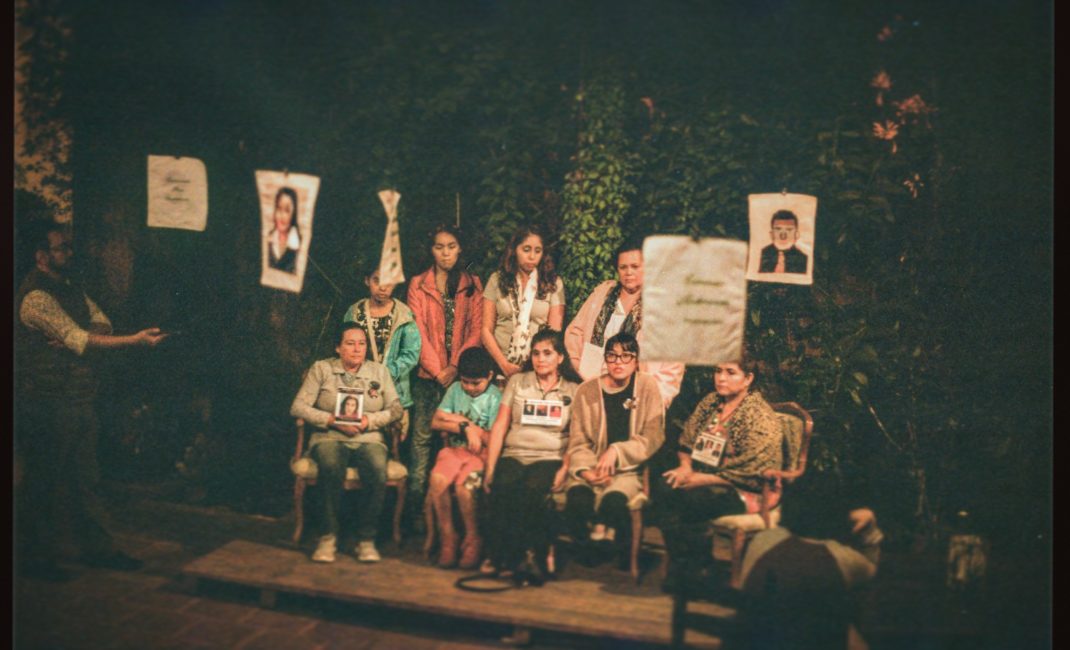
An art exhibition by Familiares por Justicia – by Mauricio Ramirez de Anda
Laura Orozco Medina, whose father and two brothers have been forcibly disappeared, says: “We are trying to generate visibility about what is really happening in Mexico and these are serious human rights violations.
“This is not a war against drug traffickers. Those who are disappearing are tradespeople, professionals, farmers, they are not criminals, like the state says.”
Enforced disappearances by security forces and criminal groups in Mexico are a widespread problem, which worsened when former president Felipe Calderón took office in 2006 and executed the “War on Drugs” – a highly militarized response to combat drug trafficking.
At the beginning of 2020, the head of the National Search Commission, Karla Quintana Osuna, announced that there were currently 61,637 people reported missing and not found in Mexico.
The head of Michoacán state’s search commission, Marco Antonio Hernández Zaragoza, reported in February that of some 3,980 people had been recorded missing in the state since 2006, and that roughly half of them had been found. It is not known, however, whether they were found alive or dead. Michoacán does not record the number of people unfound, nor does it record the number forcibly disappeared.
For family members left searching for loved ones, the path to truth, justice and memory is fraught with obstacles.
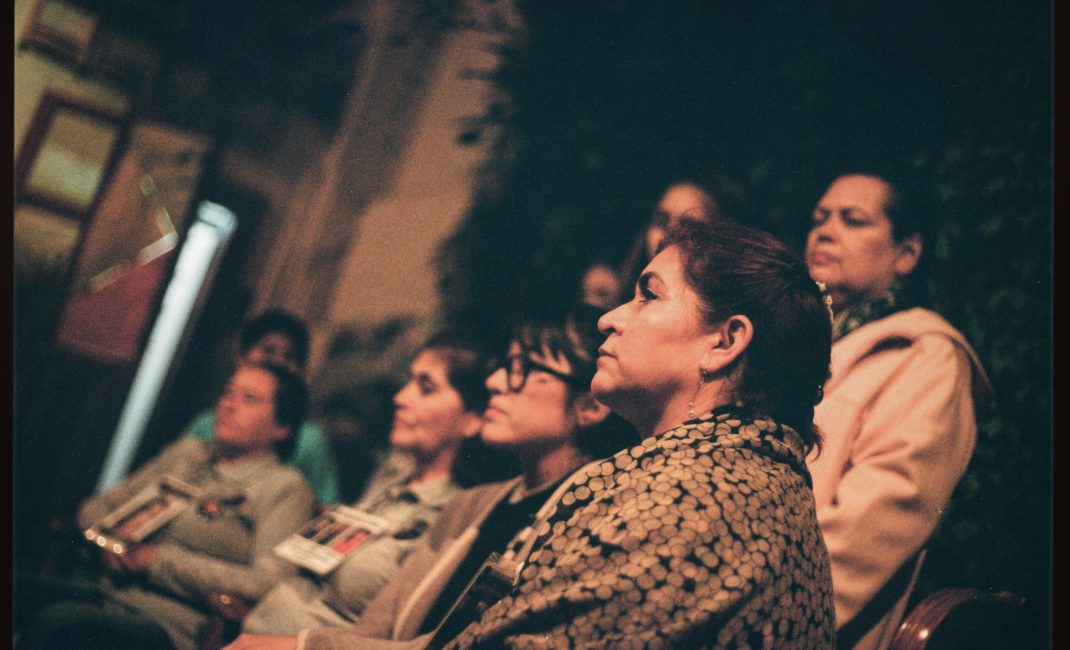
An art exhibition by Familiares por Justicia – by Mauricio Ramirez de Anda
As Human Rights Watch’s 2020 Mexico Country Report states: “Prosecutors and police routinely neglect to take basic investigative steps to identify those responsible for enforced disappearances, often telling missing people’s families to investigate on their own.”
Abandoned by the authorities, victims’ families are carrying out their own searches, demanding answers and raising the visibility of their missing loved ones. In Mexico, there are dozens of activist groups like Familiares Caminando por Justicia.
Enforced disappearances as a state practice
For Orozco, whose family was targeted for their land, enforced disappearances “are a social phenomenon and a state practice designed to generate fear in order to occupy land and steal resources”.
Her family made a living producing avocados in Nuevo Zirosto – a small rural community in western Michoacán, a region known for its mild climate, rugged terrain and verdant forests of pine, oak and fir. Everything changed in 2006 when a local criminal organisation attempted to extort the family.
Read more: Walking from Mexico to the US across Trump’s proposed border wall
Orozco’s father, Leonel Orozco Ortiz, refused to give in to extortion demands. Then, in 2007, soldiers broke into the family home and falsely accused the then 20-year-old José Iván Orozco Medina – one of Orozco’s brothers – of harbouring drugs and weapons. They threatened to arrest him unless the family gave them money. But when they refused to pay, the soldiers arbitrarily arrested him. Orozco Medina spent five years in jail before being acquitted in 2012.
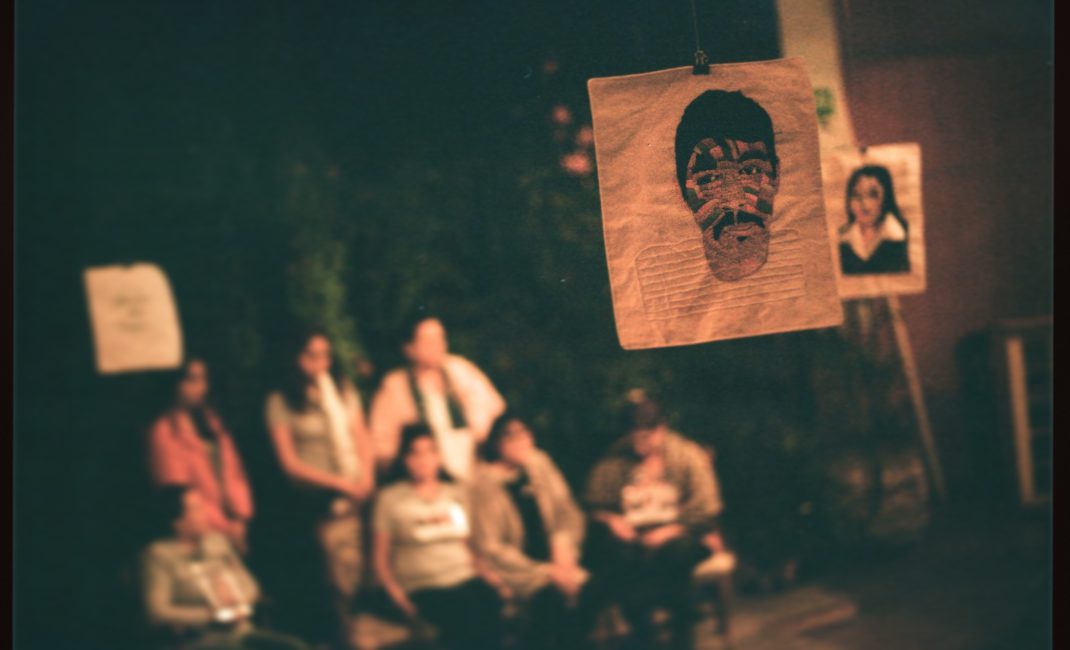
An art exhibition by Familiares por Justicia – by Mauricio Ramirez de Anda
Meanwhile, in 2008, two days before Leonel Orozco Ortiz was due to travel to the state Human Rights Commission in Morelia to register a complaint, he was arrested and disappeared.
The victimisation of the family did not end there.
Orozco’s 17-year-old brother Leonel Orozco Medina disappeared without a trace in 2009 after he was detained by members of the now-defunct Federal Investigations Agency (AFI). Then, in 2010, the family were forced from their land by armed men and they lost everything.
In 2012, another brother of Orozco, Moisés Orozco medina, was last seen alive being detained by municipal police. Finally, in 2018, José Iván Orozco Medina, who was also a member of Familiares Caminado por Justicia, was fatally shot by two armed men.
Orozco’s family were first targeted for extortion approximately six months after President Calderón took office. In the first week of his presidency he sent 6,500 soldiers and federal agents to his home state, Michoacán. This was the first of several joint operations to combat drug trafficking and criminal groups, which were then rolled out into Baja California, Chihuahua, Guerrero, Sinaloa and other areas of Mexico.
Decades of disappearances
Mexico has a long history of this “state practice” – political opponents were disappeared by government forces as part of a counter-insurgency campaign during the country’s internal conflict in the 1960s and 70s. However, there has been a dramatic rise in the number of people recorded as missing since 2006.
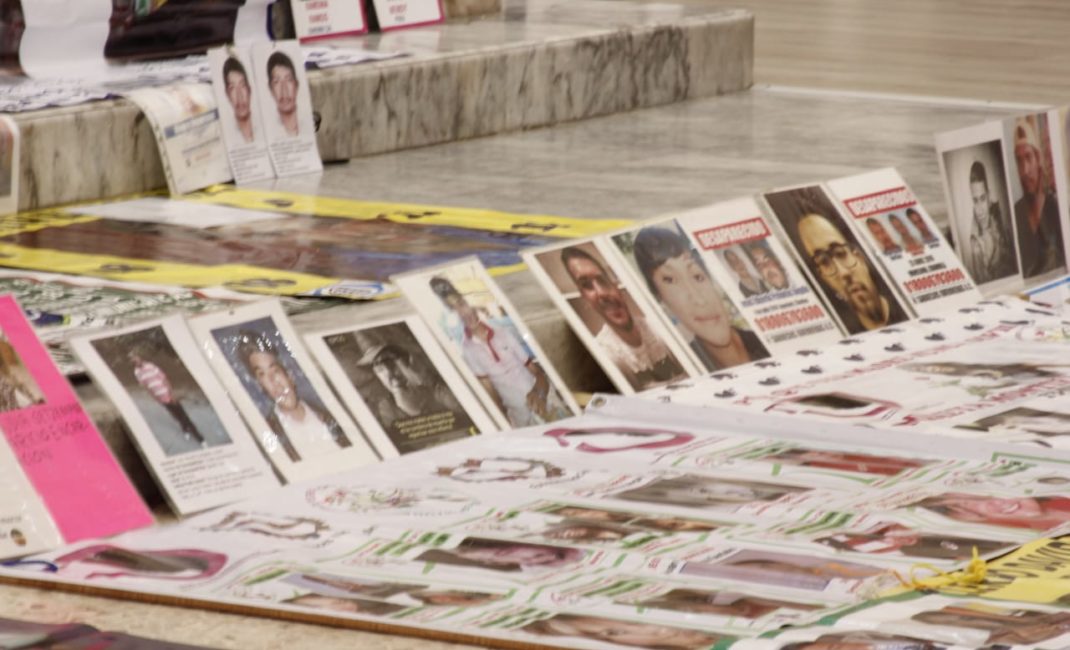
Profiles and pictures of Mexico’s disappeared
According to Barbara Frey, director of the Human Rights Program at the University of Minnesota and an expert on human rights in Mexico:
“The decision by Calderón to send in the military and declare war on criminals and narco crime was a substantial shift that led to – certainly in the area that we’ve researched the most in the north-eastern border states – a notable increase in the amount of day-to-day violence including extrajudicial killings, trafficking and disappearances”.
Michoacán crime researcher and co-founder of Noria Research, a non-profit research centre and think tank, Romain Le Cour Grandmaison, says the practice is also part of a historic pattern of violence.
During the internal conflict, the counter-insurgency label was used to pursue anyone opposing the system and to target communities with land and recourses. Today, the label used is the “War on Drugs”.
“You can use violence in Mexico to pursue political and economic interests and the label of the drug war is very convenient for that because you can justify almost everything by saying it is part of the drug war,” says Le Cour Grandmaison.
Media and the reporting of disappearances in México
One of the obstacles faced by the families of the disappeared is the pervasive “War on Drugs” narrative promoted by many of México’s media outlets and often supported by the government. This narrative contends that the country’s violence lies at the hand of the cartels and that victims too must be criminals.
At the University of Minnesota, Frey and her colleagues analysed news content in four Mexican states – Guerrero, Nuevo Leon, Jalisco and Coahuila – and found “substantial underreporting” of enforced disappearances. She says:
“In Jalisco, there have been more than 8,000 disappearances in the past decade and we found about 200 articles that actually named the victims. So what we were searching for was named victims. So they will report on the crime but they rarely, rarely profile the victim.”
Frey explains that the language used to describe disappearances often centres on the word levantón.
Stressing that levantón is not used in any country other than México, Frey says: “The word has a connotation that it’s a crime among criminal groups and so paints the image that the victim is a criminal as well as the perpetrators, and so the victim must have done something that merited them being disappeared.”
“So that image of levantón completely fits the government narrative, which is it is all organized crime and there are no state actors.”
In the last five years, however, Frey says a group of independent journalists have emerged to investigate disappearances and explain what is going on.
It is also family members, like Orozco and her fellow activists, who have been investigating these crimes, challenging the narrative, and sharing victim’s stories.
Family groups demand truth and justice
Mostly made up of women, Familiares Caminado por Justicia members come from all walks of life. Some are housewives, others work in trade, or are professionals, but they are all united by the same goal.
Read more: Faltan 43: Can Human Rights Education Heal Mexico’s Deep Wounds?
“Our organization was born because of the need to search for our love ones who have disappeared in Michoacán and other states, and of the need to demand the truth and to find justice for them,” says Orozco.
Familiares Caminado por Justicia carry out legal actions, such as registering complaints and pursuing judicial investigations. They have formed networks with activist groups in the state and across Mexico, and are working with national and international non-government and human rights organisations.
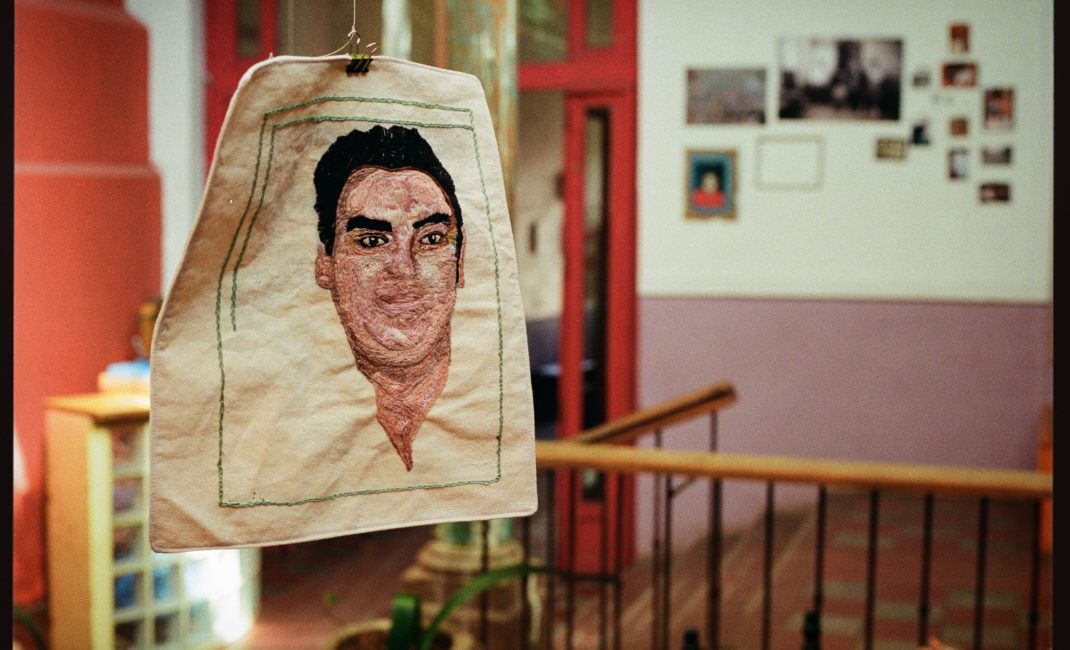
Members of Familiares Caminando por Justicia (Families Walking for Justice) embroider faces of missing people on white fabrics – by Mauricio Ramirez de Anda
They use art – embroidery, photography, cartography and performance – in their activism. They have painted public murals remembering the disappeared, hosted workshops for children, and educated the public about who the victims are and who is responsible for their disappearance, as well as gathering once each month in Morelia’s main square.
For one of their projects, group members created maps of the daily routes that were once walked by their missing loved ones, walking those routes as a family, and photographing the act of walking.
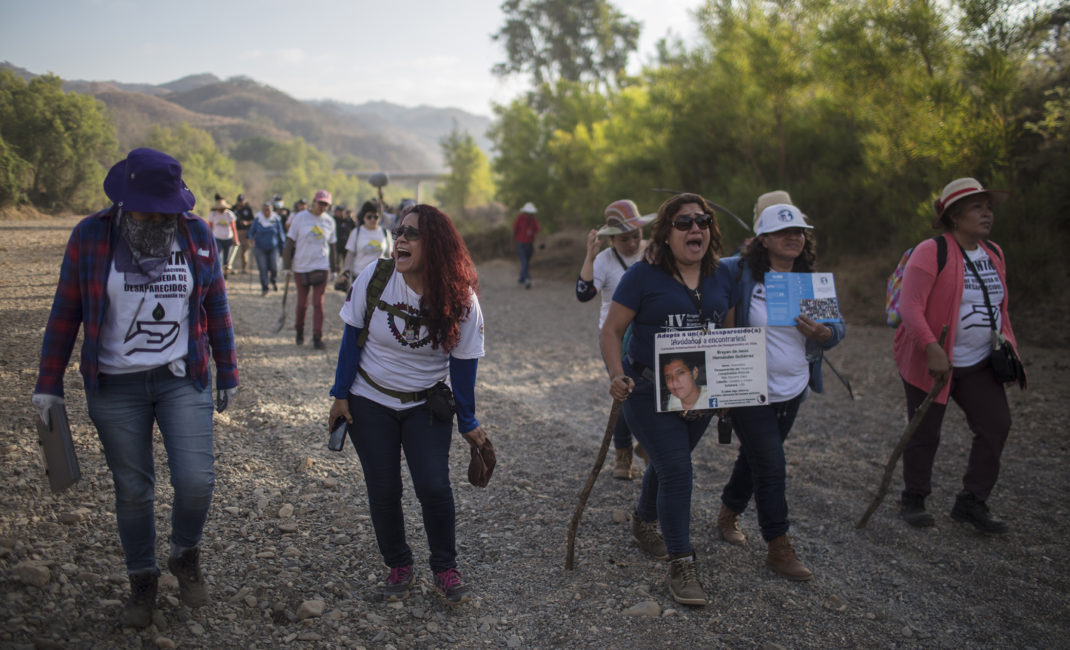
Quinta Caravana Internacional de Búsqueda de Desaparecido (the Fifth International Search Caravan for Missing Persons) – by Alan Ortega
The simple act of walking, the group says, is a method of resistance by making visible those who are missing, remembering them as individuals and not serving as a reminder that they were forcibly disappeared.
Orozco says:
“Memory is so important. It is important so that this does not happen again. It is important in resisting against forgetting, and against the social and institutional silence that continues to be imposed upon us.”
From April 27 to May 11 last year, Familiares Caminado por Justicia participated in the Quinta Caravana Internacional de Búsqueda de Desaparecido (the Fifth International Search Caravan for Missing Persons).
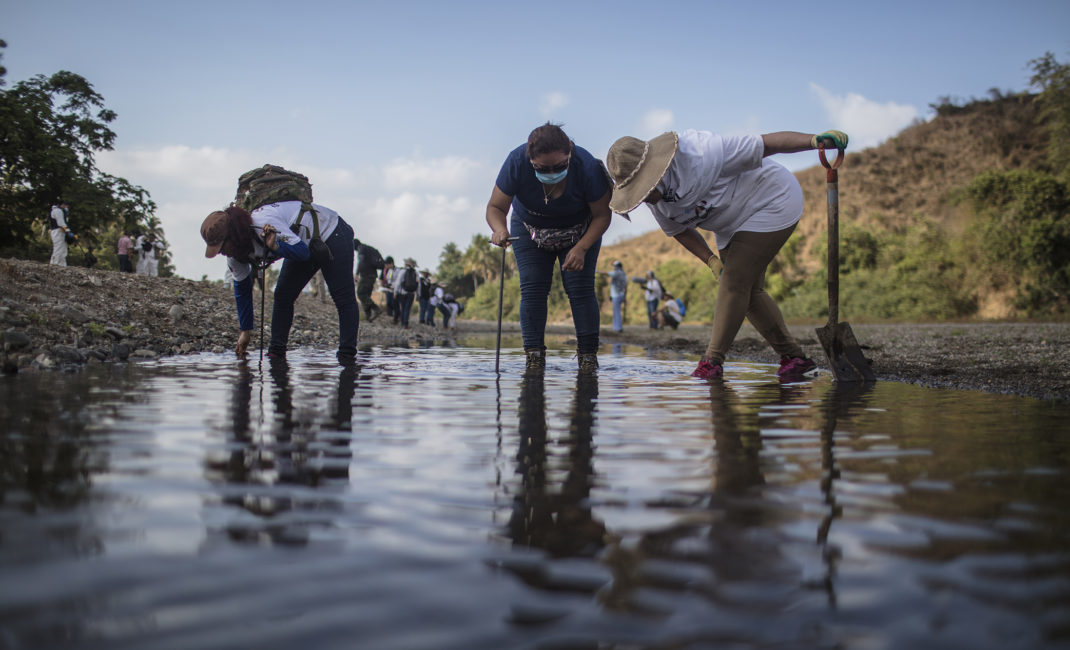
Quinta Caravana Internacional de Búsqueda de Desaparecido (the Fifth International Search Caravan for Missing Persons) – by Alan Ortega
The purpose of the caravan was to locate clandestine graves and gather forensic evidence related to disappeared persons. Carried out across seven municipalities in Michoacán, it found almost 50 bone fragments.
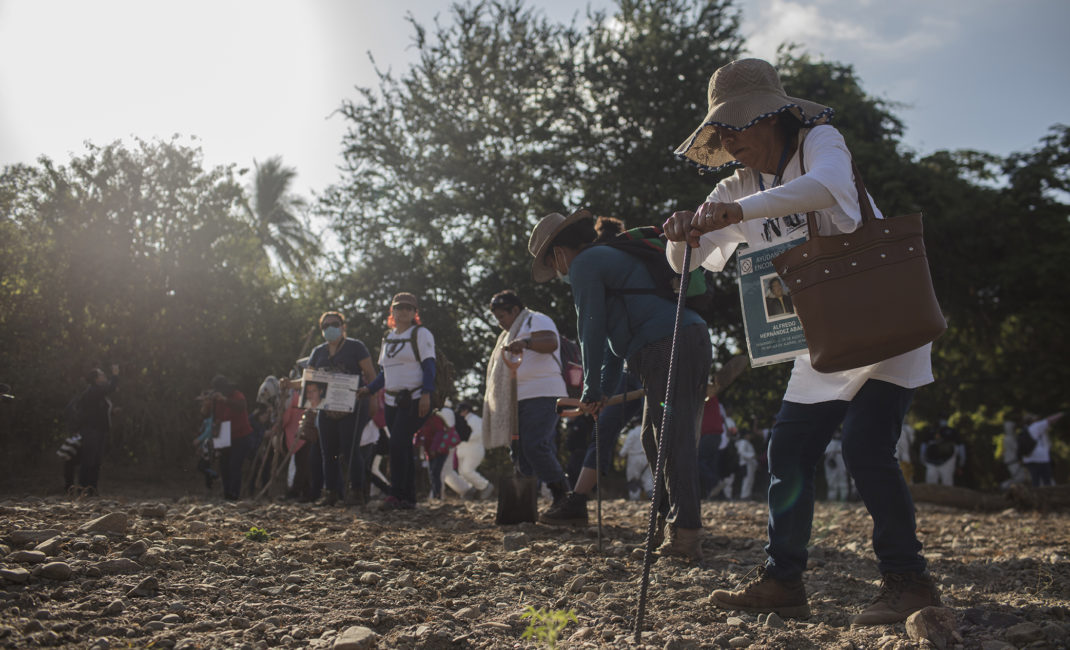
Quinta Caravana Internacional de Búsqueda de Desaparecido (the Fifth International Search Caravan for Missing Persons) – by Alan Ortega
The caravan’s success, however, was followed by tragedy. Fellow activist Zenaida Pulido Lombera, who coordinated a search in the coastal municipality of Aquila, where her husband was forcibly disappeared in 2003, had been receiving death threats. In July 2019, just two months after the caravan ended, Pulido was fatally shot.
Orozco says: “It was the first time in Michoacán that there was this type of land search and we had positive results, [her murder] was way to silence her, it was a repressive way to silence the caravan.”
Following her death, Pulido’s family also received death threats and, as of yet, no one has been held accountable for her murder.
Those committing grave human rights abuses in Mexico know they can do so with little to no chance of ever being brought to justice.
According to Frey, there are two key factors that have led to a spike in human rights violations in Mexico: impunity and the state’s involvement, whether directly complicit or because it fails “to act in the face of narco-violence”.
Read more: Ribbons of shame: Canada’s missing and murdered Indigenous women
Despite the murder of her brother and Pulido, and the very real threats facing human rights defenders in Mexico, Orozco is resolute:
“Of course, this represents a risk to us. Our work is inconveniencing the state as we are showing what is happening but we will continue to work to document what is going on, we will continue to show what is really happening in Mexico, even if that represents a risk to ourselves.”
Mexico’s 2017 law on disappearances
The work being done by groups such as Familiares Caminado por Justicia has yielded positive results at a national level. Thanks to the successful lobbying effort by families of the disappeared, in 2017 Mexico created a general law on disappearances.
As Human Rights Watch reports, the law has “established a single nationwide definition for” enforced disappearances and has instructed the creation of public bodies “to facilitate the investigation and prosecution of disappearances.”
Under this new law, the Comisión Nacional de Busqueda (the National Search Commission) (CNB) was created to manage search efforts and the Sistema Nacional de Búsqueda de Personas (National Search System) was also established to coordinate state institutions involved in searching for the disappeared.
As of December 2019, 29 of Mexico’s 32 states, including Michoacán, have created state search commissions.
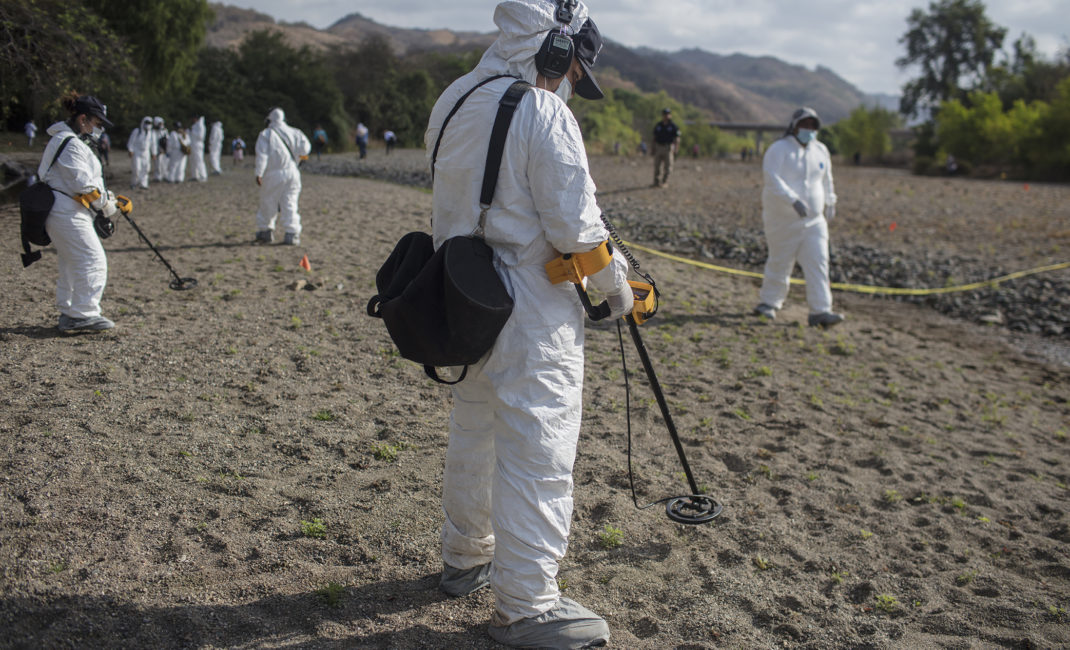
Searching for the disappeared during the Quinta Caravana Internacional de Búsqueda de Desaparecido (the Fifth International Search Caravan for Missing Persons) – by Alan Ortega
Frey explains that there are some “very dedicated individuals” who are working “extremely hard to try to begin to get some results under this law,” but effectiveness does vary among the newly-created search commissions.
Searching for the disappeared in Mexico is a herculean task. Frey says that the state search commissions are under-resourced, they lack the expertise to deal with these complex cases, and difficult decisions have to be made about which cases to prioritise in states where there is an “astounding” backlog.
Frey points out that the state everyone holds up as a search commission model, is Estado de México (Mexico State). It has been more successful in finding missing people due to its commissioner, María Sol Berenice Salgado Ambros, who is “very entrepreneurial in her approach and has achieved the trust of lots of different actors.”
Even then, however, Frey says it is still “just grains of sand next to a mountain of disappearances.”
“A lot more resources and a lot more time is needed to be able to see significant results,” she adds.
Back in Michoacán, Orozco agrees that their successful lobbying has led to establishment of multiple rights for families. In reality, however, support from the authorities is sorely absent.
She says: “We are still lacking, clear, impartial and logical investigations on behalf of the authorities tasked with investigating the disappearances of our loved ones…We have the indolence of public officials who are incapable of helping us to eradicate this social practice. The situation in Mexico is a little discouraging because it implies a responsibility that the [government] does not want to face.”
But Orzoco says the message of Familiares Caminado por Justicia remains clear: “We are facing a crisis, our loved ones were not criminals. The work we are doing is to show that here in México people are disappearing.”
Read more:
